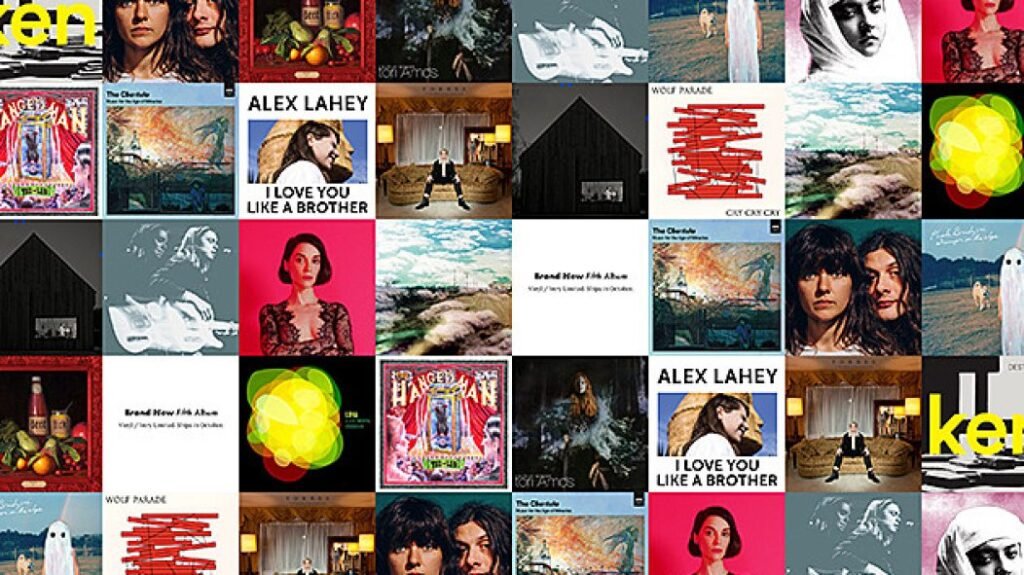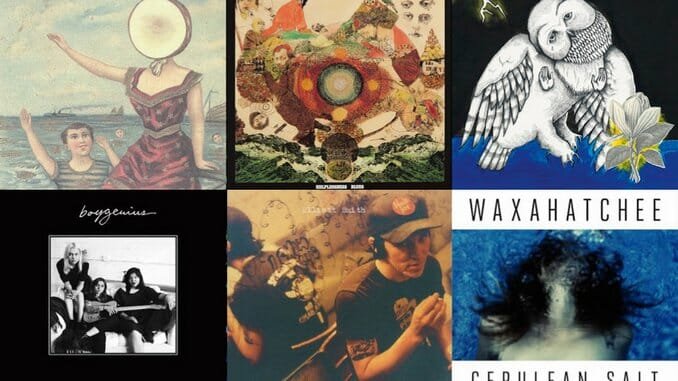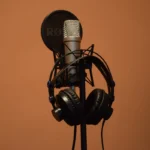The Rise of Concept Albums in Indie Music
In the world of indie music, creativity and artistic expression are at the forefront, often breaking boundaries in ways that mainstream music can’t. One of the most exciting trends in recent years has been the rise of concept albums, where an album is built around a central narrative or theme, offering a more cohesive and immersive experience for the listener. This evolution in album structure has seen indie musicians pushing the limits of traditional song formats, often incorporating storytelling, social commentary, and personal journeys into their music. In this post, we’ll explore how concept albums are shaping the indie music scene and influencing both listeners and artists alike.
What is a Concept Album?
A concept album is an album where all the songs are linked by a central theme, idea, or narrative. The concept can be a storyline (like a musical), a political message, a philosophical exploration, or even a deep dive into personal experiences. While the songs can stand alone, the album is designed to be listened to as a whole, with the individual tracks contributing to a larger vision or message.
Historically, concept albums were popularized in the 1960s and 1970s by rock bands like Pink Floyd (The Dark Side of the Moon) and The Beatles (Sgt. Pepper’s Lonely Hearts Club Band). However, in recent years, indie artists have re-embraced the concept album format, bringing new life to it with innovative ideas, personal themes, and experimental sounds.
The Indie Music Scene and the Appeal of Concept Albums
The rise of concept albums in indie music can be traced to the growing desire among indie artists to push boundaries and offer something deeper than traditional song structures. Many indie musicians pride themselves on being unconventional, and a concept album provides them with the perfect vehicle to express their creativity in new ways.
1. Thematic Depth and Artistic Freedom
Indie artists are often less constrained by commercial pressures and are free to explore ambitious artistic concepts. A concept album allows them to take risks and experiment with sounds, genres, and production techniques that might not fit into traditional album formats. The result is often a more dynamic and thought-provoking listening experience.
For example, albums like The Suburbs by Arcade Fire or The Hazards of Love by The Decemberists combine intricate storytelling with musical diversity, taking the listener on a journey that spans multiple genres and emotional landscapes. These albums are not just collections of songs, but cohesive works of art that demand a more focused, immersive listening experience.

2. Increased Focus on Narrative and Storytelling
One of the most appealing aspects of concept albums is the emphasis on storytelling. Indie artists, known for their lyrical dexterity, often use concept albums to tell complex stories that unfold throughout the tracklist. These albums can take many forms: a single narrative arc, a collection of vignettes that explore different facets of a theme, or a set of character-driven songs that reveal a larger plot.
For example, The Moon & Antarctica by Modest Mouse uses surreal and abstract imagery to tackle themes of alienation, mortality, and existential reflection, creating a world where each song contributes to the larger narrative. Similarly, The Crane Wife by The Decemberists draws from traditional folk tales to tell a tragic yet beautiful story of love, loss, and redemption.
3. Concept Albums as Cultural Commentary
Indie musicians often use concept albums as a way to reflect on societal issues and engage in cultural commentary. The depth of a concept album allows artists to delve into complex topics, making bold statements through music. Whether it’s political activism, environmental concerns, or a reflection on modern life, concept albums give artists the space to challenge their audiences and explore their viewpoints.
An example is The Life of Pablo by Kanye West, where each song within the album explores different aspects of fame, mental health, and personal struggles. While not typically considered an indie album, its approach to themes and the way Kanye experiments with genre and format is reflective of the creative spirit that defines indie music today.
Notable Indie Concept Albums
As the concept album format continues to rise in popularity within the indie scene, several albums have garnered significant praise for their depth and creativity. Here are a few standout examples:
1. The Suburbs – Arcade Fire (2010)
Arcade Fire’s The Suburbs is a prime example of how concept albums can speak to larger societal themes. The album tackles themes of nostalgia, the loss of innocence, and the tensions between past and present, all set against the backdrop of suburban life. It’s a perfect blend of personal reflection and social commentary, making it one of the most significant concept albums in indie music.
2. The Hazards of Love – The Decemberists (2009)
This album is a rock opera, weaving together a fantasy story of love, betrayal, and redemption. The Decemberists’ The Hazards of Love features intricate storytelling, lush orchestration, and dramatic performances that draw the listener into its fictional world. The band’s commitment to their concept results in an album that feels like a cinematic experience.
3. Good Kid, M.A.A.D City – Kendrick Lamar (2012)
Although Kendrick Lamar is often associated with hip-hop, his album Good Kid, M.A.A.D City has the structure and storytelling qualities of a classic concept album. The album follows Lamar’s experiences growing up in Compton, addressing themes of gang violence, peer pressure, and family life. It’s a personal yet universal narrative that makes the album resonate with listeners on a deep emotional level.
4. Lonerism – Tame Impala (2012)
Tame Impala’s Lonerism is a psychedelic concept album that explores themes of isolation, alienation, and self-discovery. Kevin Parker, the mastermind behind Tame Impala, uses the album to reflect on the feeling of being disconnected from the world around him, blending surreal soundscapes with introspective lyrics to create a unique sonic experience.
The Future of Concept Albums in Indie Music
The rise of streaming platforms has fundamentally changed the way people consume music, leading some to believe that the era of the traditional album is over. However, the concept album remains relevant, especially in the indie scene, where artistic expression often takes precedence over commercial success.
With advances in technology, indie musicians are now able to incorporate even more experimental sounds and multimedia elements into their concept albums. Whether through immersive virtual experiences, interactive storytelling, or collaborations with visual artists, the concept album is evolving and finding new ways to captivate audiences.
As indie music continues to grow in popularity, we can expect to see even more artists embrace the concept album format, using it as a means to explore complex themes, push musical boundaries, and tell stories that resonate deeply with listeners.
Conclusion
The rise of concept albums in indie music marks a return to artistic integrity, where music becomes not just entertainment but a medium for storytelling and social commentary. Through thematic depth and innovative production, these albums have redefined the way we experience music, offering a more immersive and thought-provoking journey. As the indie music scene continues to evolve, we can only anticipate more groundbreaking concept albums that will inspire and challenge listeners for years to come.


